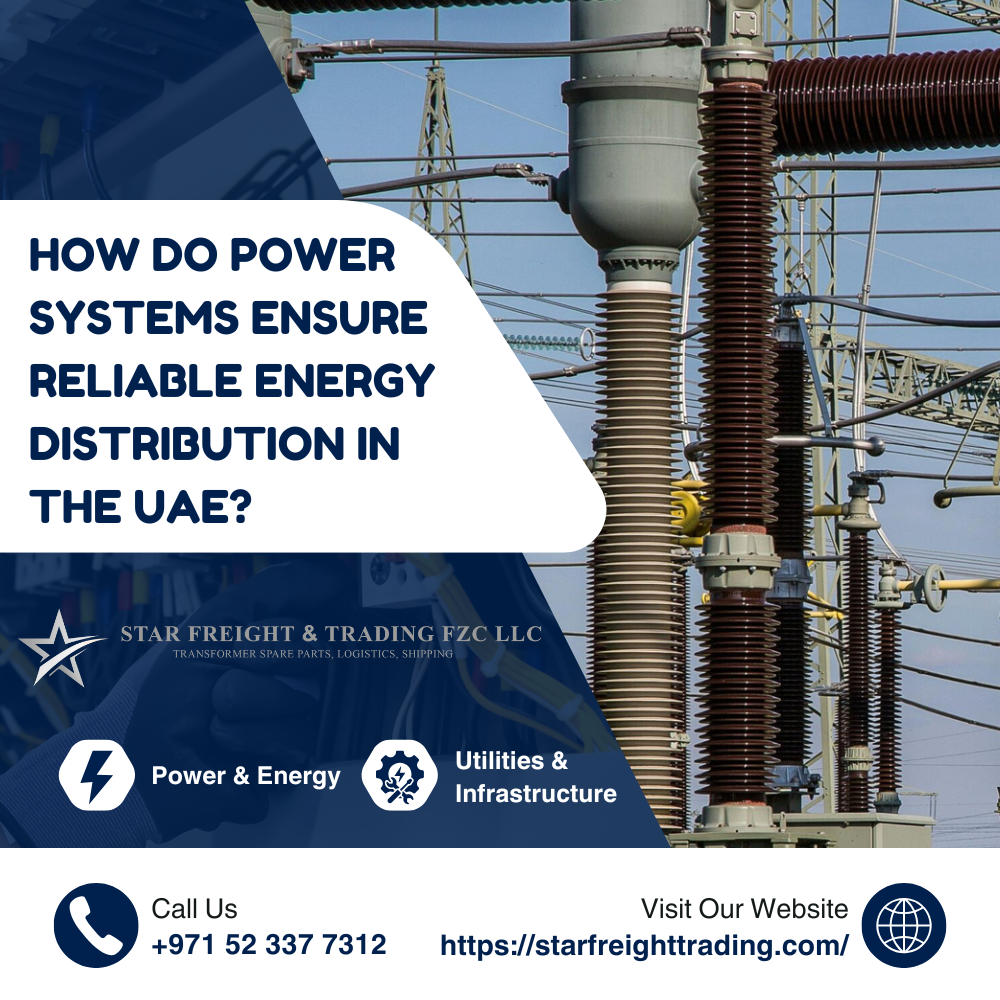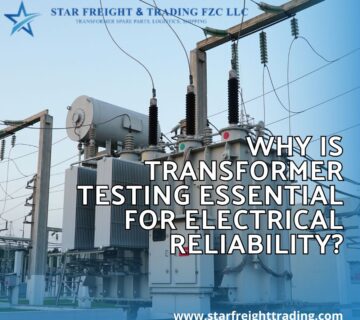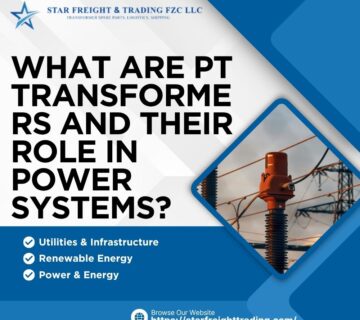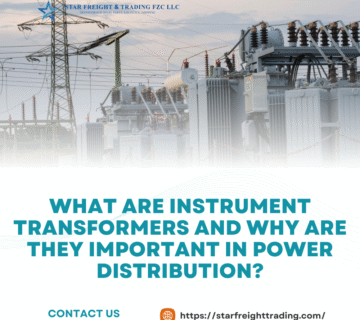The UAE is home to some of the most advanced infrastructure in the world — from skyscrapers in Dubai to industrial hubs in Abu Dhabi and Sharjah. Behind the scenes, a sophisticated power system ensures that homes, businesses, and industries receive electricity that is both stable and reliable.
But how exactly do these power systems maintain reliability in such a demanding environment? This article explores the key components, strategies, and technologies involved, and highlights the role of Star Freight Trading in supporting UAE energy networks.
The Importance of Reliability in UAE Power Systems
Reliability in power distribution means more than just keeping the lights on. It impacts:
-
Economic activity – Downtime in factories or offices leads to productivity losses.
-
Public safety – Hospitals, transportation, and emergency services rely on uninterrupted supply.
-
National image – As a global business hub, the UAE’s infrastructure reliability supports investor confidence.
In a country with high energy demand, extreme summer temperatures, and rapidly growing cities, reliability is not optional — it’s essential.
Key Elements of Reliable Energy Distribution
Reliable energy distribution in the UAE depends on a combination of infrastructure, technology, and operational practices.
1. Robust Transmission and Distribution Networks
Electricity in the UAE is generated at power plants (including gas, nuclear, and renewable sources) and transmitted over high-voltage lines to substations. From there, distribution lines deliver power to end-users.
-
High-voltage transmission lines reduce losses over long distances.
-
Redundant circuits ensure backup paths in case of faults.
-
Modern substations manage voltage levels and power flow.
2. Advanced Substation Technology
Substations in the UAE use equipment such as:
-
Transformers – Adjust voltage levels for safe distribution.
-
Circuit breakers – Disconnect faulty sections quickly.
-
Relays – Detect abnormal conditions and trigger protection mechanisms.
Many UAE utilities now operate digital substations with real-time monitoring and automation.
3. Grid Protection and Control Systems
Protection systems prevent faults from spreading and causing widespread outages. These include:
-
Overcurrent protection – Trips breakers when current exceeds limits.
-
Differential protection – Detects imbalances in transformers or generators.
-
Distance protection – Measures impedance to locate transmission line faults.
4. Load Management
Balancing supply and demand is critical. In the UAE, this involves:
-
Forecasting – Using data analytics to predict demand spikes, especially during hot months.
-
Demand response programs – Encouraging large consumers to adjust usage during peak times.
-
Energy storage – Emerging solutions like battery storage to stabilize the grid.
5. Regular Maintenance and Testing
Preventive maintenance ensures equipment operates at peak performance:
-
Transformer oil testing – Detects insulation degradation.
-
Relay testing – Verifies correct operation of protection systems.
-
Cable inspections – Identifies wear before it causes faults.
The Role of Smart Grids in UAE Reliability
Smart grids use digital technology to monitor, analyze, and control power flows in real time. Features include:
-
SCADA systems – Allow operators to control equipment remotely.
-
Automated fault detection – Speeds up restoration.
-
Integration with renewables – Balances solar and wind power with traditional generation.
The UAE’s investment in smart grid technology is a major reason why outages are rare and short-lived.
Environmental Factors in the UAE
The UAE’s hot, humid, and dusty climate presents unique challenges:
-
High temperatures can strain transformers and cables.
-
Dust and sand can contaminate insulators, leading to flashovers.
-
Salt-laden air in coastal areas can accelerate corrosion.
Utilities counter these challenges through specialized equipment coatings, regular cleaning schedules, and climate-resistant materials.
Star Freight Trading — Supporting Reliable Energy Distribution
Star Freight Trading plays an important role in supporting the UAE’s power systems. They supply and service critical components used in transmission and distribution, including:
-
High-quality current transformers and potential transformers.
-
Protection relays for substations and industrial networks.
-
Transformer oils and filtration equipment.
-
Switchgear components for medium and high voltage systems.
Their technical expertise ensures that clients choose equipment that meets IEC standards and UAE regulatory requirements, helping to maintain system reliability.
Real-World Example — Industrial Power Reliability
A large manufacturing facility in Abu Dhabi needed to improve power reliability after experiencing several unplanned shutdowns due to equipment faults. Star Freight Trading worked with the plant’s engineers to:
-
Upgrade outdated electromechanical relays to modern numerical relays.
-
Install new current transformers for accurate fault detection.
-
Implement a preventive maintenance schedule for transformers and switchgear.
The result was a significant reduction in downtime and improved operational efficiency.
The Human Factor — Skilled Operations
Even the most advanced systems require skilled operators and engineers. In the UAE, continuous training ensures that utility staff can:
-
Respond quickly to faults.
-
Analyze system data for early warning signs.
-
Coordinate with other entities to maintain grid stability. Our Products
Future of Reliable Energy Distribution in the UAE
Looking ahead, several trends will further enhance reliability:
-
Increased renewable integration – Solar power is expanding rapidly, requiring advanced balancing solutions.
-
AI and predictive maintenance – Using machine learning to detect potential failures before they occur.
-
Energy storage expansion – Batteries and other storage solutions to handle peak loads and emergencies.
Conclusion
Reliable energy distribution in the UAE is the result of advanced infrastructure, strict maintenance, skilled personnel, and the support of trusted suppliers like Star Freight Trading. By combining technology, planning, and expertise, the UAE ensures that homes, businesses, and industries enjoy a stable and efficient power supply — even in one of the world’s most challenging climates.
Frequently Ask Questions
Q. What does reliable energy distribution in UAE mean?
A. Reliable energy distribution in UAE refers to delivering electricity consistently, with minimal interruptions, to homes, businesses, and industries.
Q. How is reliable energy distribution in UAE achieved?
A. It’s achieved through modern transmission lines, smart grids, protective relays, preventive maintenance, and skilled operational teams.
Q. What role does Star Freight Trading play in UAE power systems?
A. Star Freight Trading supplies critical components like transformers, relays, and switchgear, helping utilities and industries maintain reliable power.
Q. Why is reliable energy distribution vital for UAE industries?
A. Industries rely on continuous power for production, safety systems, and efficiency. Outages can cause costly downtime and impact operations.
Q. How does the UAE handle power challenges from its climate?
A. Utilities use climate-resistant equipment, regular cleaning schedules, and corrosion protection to withstand high heat, dust, and salt-laden air.
Q. What is the future of reliable energy distribution in UAE?
A. The future includes more renewable integration, advanced AI-based maintenance, and expanded energy storage solutions.





No comment